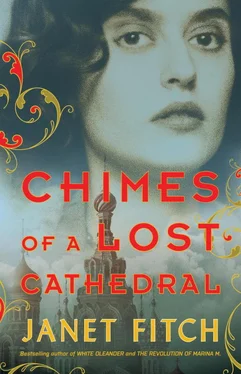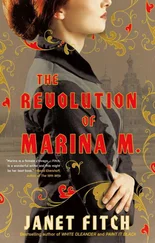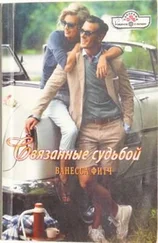Those snowy evenings playing chess with my father. I was not particularly gifted, but I was the only one in the family interested in playing. I so wanted him to think I was intelligent, that I was worthy of his time. The hours we spent in his study, him cleaning his pipe and tapping it out, all those little gestures, the smell, the closeness, his brown eyes, the neatly trimmed beard, his dimples. We would play the famous games, Marshall v. Chigorin, Rubinstein v. Lasker, starting with the endgames, stopping, discussing. Papa’s professorial voice, explaining, until I came to feel in my very bones the power of rooks controlling overlapping rows, the surprise of the knights, the versatile queen. He scolded me on my predilection for lightning strikes and odd impulsive moves early in the game, proving to me again and again how methodical development of one’s back row and pawn defenses would win out against startling aggression or whimsy, which soon fell apart for lack of correct placement of lesser men. But in the end, neither one of us had played a very good defensive game, had we, Papa?
I remember how angry Varvara was when we first played and I beat her, not once but every time. She considered me flighty, and yet, who ended up pinned to the edge of the board, or isolated in the center? She hadn’t had the advantage of growing up with such a father, a man who worshipped cool intellect and living within the rules. In the end, however, she had won on a much larger chessboard. My father couldn’t anticipate what life would deal out in the streets and courtyards of his country, that abiding by the rules would never win against a player who might turn over the board and pull out a Mauser, stick it to your forehead.
The heat lessened with the brief but blessed northern night, and by the time my train trundled into the Vyatka station at three in the morning, I’d won a small pair of scissors, a fountain pen, and a watch that didn’t work. I left them a poem:
Redheaded and red-handed
Red Marina and her little Spark.
Thank you for helping them
along their Red way.
They introduced me to the engineer and the conductor. “But don’t play chess with her,” the foreman warned. “You’ll end up without your shoes and a month of rations.”
There were no first- or second-class carriages on this train, just third class and miles of boxcars brimming with people. Iskra and I were lucky beyond lucky that the conductor got us into third class at all. It was utterly packed, but at least it was designed for human transportation, with windows and berths. The heat was still awful, but once we got going, I imagined there would be a breeze to cut the ripe stew of unwashed, sweating bodies. I followed him down the teeming central aisle of the uncompartmented car, Iskra sweating against me, picking our way through passengers sitting on their packages and sleeping leaning on one another’s shoulders. On either side of the aisle rose three layers of facing berths filled with luckier people who could sleep stretched at full length, heads toward the open windows.
He stopped at a set of berths about a third of the way down and rousted a sleeping boy out of the top berth, up by the ceiling, lifting him down and unceremoniously shoving him in with his mother on the second tier. “Sorry, kid, we got company.”
The mother, startled from sleep and half naked in the heat, raked me with her stink-eyes. “Who’s this, your whore?”
“How’d you like to spend a couple days on the platform and cool off, eh citizen?” He turned to me. “She give you any lip, you let me know, I’ll throw ’er off. Good luck, Comrade.”
“Oh, and a baby too.” She sighed, glottally, ekh, and irritably pulled her ugly son over to her on the narrow bunk. “This is already the worst trip I’ve ever taken. Now God has to make sure it’s the worst I’ll ever take.”
I eyed the thin, hard padding of the eye-level bunk—greasy, cloth-covered, about half an inch thick, up where it was hottest—and wondered how many people had slept on it in the last weeks and months. Fleas at best, lice at worst. I brushed it off as well as I could and put my bundle up there, spread out my sheepskin to lie on. At least it was summer. They said typhus was a winter disease. I couldn’t afford to get sick now—Iskra would have little chance of surviving anything we might catch on this train. I unbound her from the sling and put her up in the berth closest to the wall, and climbed up myself, apologizing as I stepped on the lower and then the middle berth. I lay down, loosening my clothes. How I hated to have to lie down on that bunk, but what choice did we have? Sleep sitting up for a week? I was lucky. I’d been lucky the whole way. Iskra was my luck. I could be in a boxcar. I could be lying on the floor with my infant.
“You’d better keep that baby quiet,” the woman below me hissed.
“Or what?” I said, turning over to face the window.
The woman proved to be a loud-mouthed, irritable harridan traveling with her husband and child from Perm to Petrograd, her husband a spets — specialist —in the chemical industry. She harped on me hour after hour, and when I returned from washing Iskra’s diapers (no offer to hold her, that was for sure) her kid was back lying in my bunk. He climbed down only under duress. Iskra and I spent most of our time lying in the berth up by the ceiling, sweating and watching the trees pass at almost walking speed as the train shuddered down the track. The middle bunk folded up, and everyone else sat on the bottom one, but there was only room for three people. I didn’t mind, I didn’t need to socialize. I slept and fed Iskra and assembled my plan for Petrograd. First, I would go down to the English Embankment and see if Kolya had returned. Then I would try Krestovskaya’s—that was a good-sized apartment, if the actress had been able to keep it after her husband was shot during Red Terror.
I could try Mina if it got desperate. Her mother, Sofia Yakovlevna, had always liked me and she had no idea that Misha and I were the same person—but Mina would be furious at my abandonment of her. Genya’s friend Anton Chernikov was a possibility… he might still have the Poverty Artel. There were still places I could go. And Iskra could see her city. I brushed her damp hair from her face—we were both sweated through—and dried her with the cloth, took the diaper off her in hopes of letting the sweat evaporate. I knew when to expect diaper usage. I hummed to her some of the work songs I had learned in the long hours of harvest.
It was a long way from Vyatka to Vologda, and this train stopped at every little town—Kotelnich, Svecha, Shabalino—and even in between, halting with an unearthly screech and shudder in the middle of nowhere. Another local roadblock, another search. Rough local militiamen in clothes that looked like they’d come off dead people would mount the train and search the cars. I figured it was safer to keep my gun on me, up near my waist behind the baby. Uncomfortable, but they would pat you down everywhere, it was an added bonus of the job.
They searched the cars, demanded everybody’s papers, though it was clear the man looking at mine, dirt caked on his fingers and in the lines on his face, could not read them. He found my food, but no surplus, just enough for the journey, and he returned my little packets and began harassing other people. Out the windows, I could see the boxcar passengers herded out into the sunlight, smoking, blinking like moles. Some of them seemed quite ill and lay in the shade of trees, unable to stand. It reminded me to thank the great forces for my berth and my spets ’s family, irritating as they were. None of them were ill and neither were the men on the other side, two from Petrocommune and a talkative blue-eyed man who told everyone he was an agronomist from Ekaterinburg, though I noticed none of the searchers had searched him, or his berth, or his valise, which he kept under it. In case his hearty confidence and ruddy good health—when we were all suspicious and exhausted—didn’t give it away. A Cheka spy. Well, at least he wasn’t ill. I would take the woman and her smirking boy, who spit sunflower shells on the floor that we all had to walk on, even the Chekist—me with an illegal pistol digging into my ribs under my skirt—as long as they weren’t feverish or scratching with lice. Watching a pale, shaky boxcar woman sitting out the search under a tree with a baby at her breast, her dull eyes staring at nothing at all, I knew my luck was still holding.
Читать дальше












